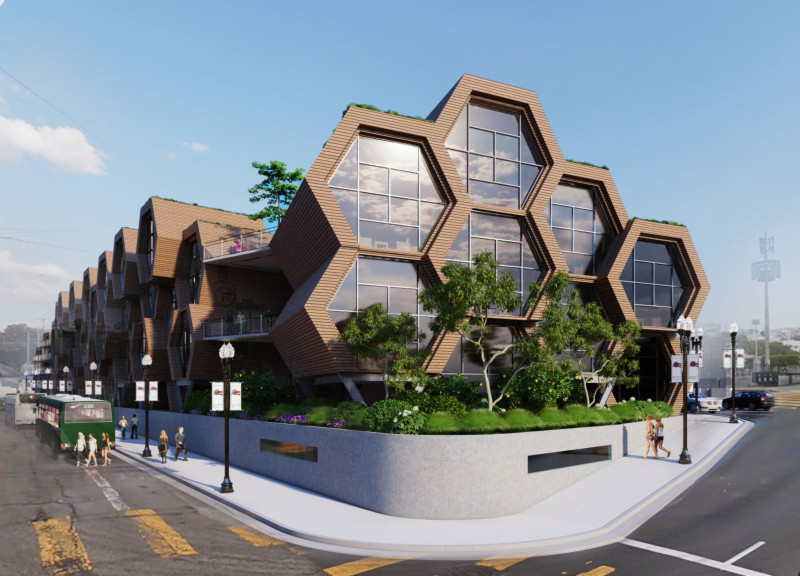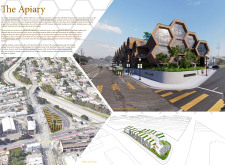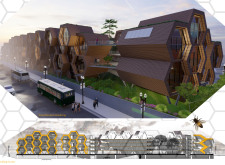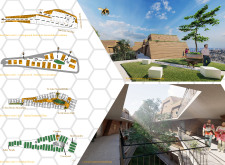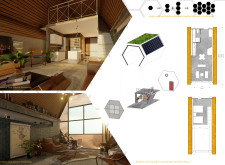5 key facts about this project
Unique Design Approaches
The Apiary employs a hexagonal modular design, reminiscent of honeycombs, which is both aesthetically pleasing and functional. This configuration optimizes natural light penetration into the living units and promotes efficient use of space. The materials chosen for the project reflect a commitment to sustainability, with reclaimed redwood used for cladding, concrete providing structural integrity, and strategically placed glass enhancing visibility and light flow.
The project emphasizes community-oriented features, incorporating shared gardens and outdoor areas that encourage resident interaction. These spaces are designed to foster a sense of belonging and connection among residents, setting The Apiary apart from typical housing developments. Additionally, the integration of solar panels and green roofs underscores the project's focus on sustainability and energy efficiency.
Architectural Features and Functionality
The Apiary consists of interconnected modular units designed for flexible living arrangements that can accommodate diverse family sizes. Each unit is tailored for optimally functional layouts, emphasizing both privacy and communal living. Outdoor decks, landscaped plots, and pet-friendly areas are also integral to the design, catering to various lifestyles and needs of urban dwellers.
Situated near public transportation, The Apiary promotes reduced reliance on automobiles, enhancing accessibility for residents. This thoughtfulness in location further supports the overarching goal of creating a livable, sustainable community in an urban setting.
The architectural intent and design of The Apiary reflect a comprehensive understanding of contemporary housing needs, merging functionality with well-executed aesthetics. To explore further details, such as architectural plans, sections, and designs, readers are encouraged to review the project presentation for an in-depth understanding of its architectural ideas and unique contributions to urban housing solutions.


